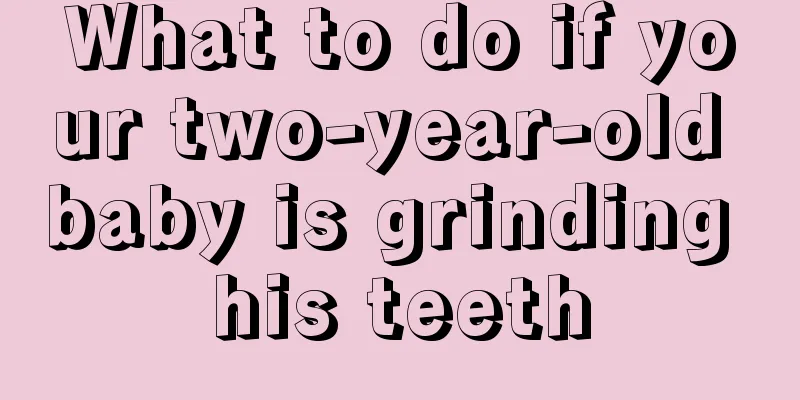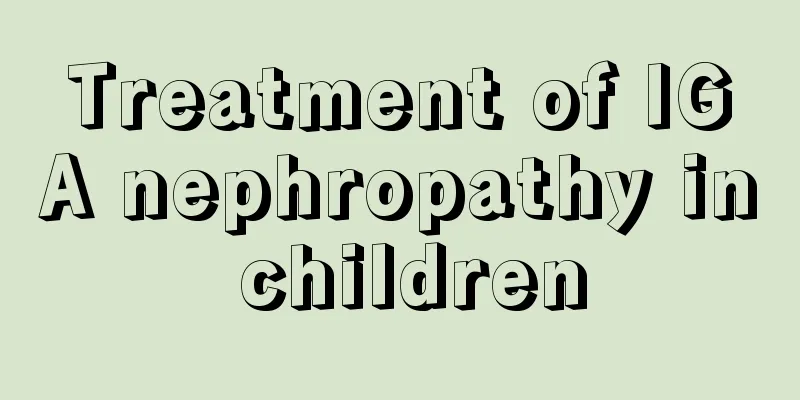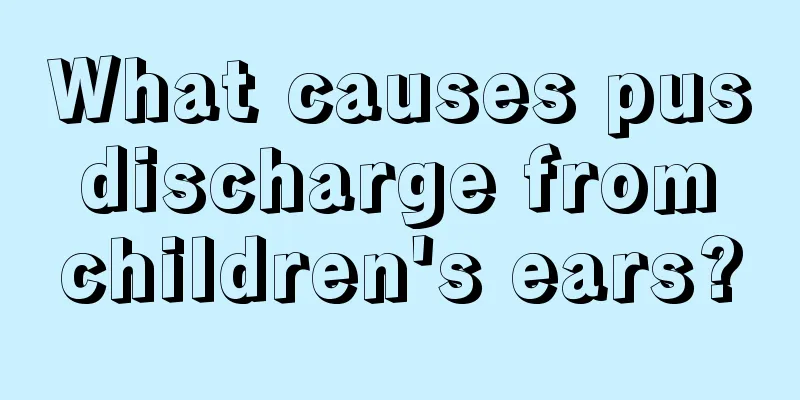What to do if your two-year-old baby is grinding his teeth

|
Many people think that teeth grinding is only a phenomenon that occurs in adults, but they don’t know that many children are also prone to teeth grinding. Teeth grinding is a symptom that directly harms the body. If the phenomenon of teeth grinding is not improved in time, it will lead to poor sleep. This phenomenon will also hinder the child’s physical development. When a child likes to grind his teeth, it must be treated in time. So what should a two-year-old baby do if he likes to grind his teeth? For children who are in the period of deciduous teeth eruption and deciduous permanent teeth replacement, night bruxism is an activity that is establishing a normal chewing relationship, but the phenomenon of bruxism may also occur for the following reasons: The first is the mental factor. Emotional tension is the most common cause of bruxism. If children are too excited during the day and are still playing games or are nervous before going to bed at night, although most of the cerebral cortex is in an inhibited state after falling asleep, there will still be some areas (such as the trigeminal nerve in the pons) in an excited state. In this way, it will send a "signal" to command the facial chewing muscles to contract briefly and continuously. As a result, the sleeping person's lower jaw will move involuntarily up and down, left and right, and forward and backward, thus making a "squeaking" sound of grinding teeth. The second is the presence of parasites in the intestines or other reasons. When people are sleeping soundly at night, the parasites wriggle in the intestinal cavity, causing the nerves to be stimulated in some way, resulting in a nerve reflex. Ascaris can secrete a variety of toxins, such as neurotoxins, allergic toxins, hemolytic toxins, and enzymatic toxins. In addition, certain metabolites discharged by the worm body will constantly stimulate the corresponding parts of the human brain while sleeping, causing some people's chewing muscles to continue to contract at night, resulting in bruxism. But not all people with parasitic diseases grind their teeth at night. Some people have irregular diets, which lead to gastrointestinal diseases and endocrine disorders, resulting in bruxism. In addition, some people sometimes eat too much at night, and a lot of food accumulates in the intestines when they fall asleep. The gastrointestinal tract has to work overtime, and due to the heavy burden, it will cause involuntary bruxism during sleep. Nutritional deficiencies in children, blood sugar and calcium concentrations, endocrine disorders, etc. may all be factors in the onset of bruxism. Third, people who lack vitamins and trace elements in their bodies are prone to bruxism. For example, a considerable number of children grind their teeth at night because of unbalanced nutrition caused by picky eating. If your child likes to grind their teeth, then try this method to give your child timely improvement. If you can control the phenomenon of teeth grinding in time, you can reduce the harm it brings to the child. Teeth grinding is a habit, and it is difficult to improve a child's teeth grinding in a short time. If you want to cure your child's teeth grinding, you must know what causes the child's teeth grinding. |
<<: Causes of Teeth Grinding in Teenagers
>>: How to treat sinusitis in a two-year-old baby
Recommend
What to do if your child sucks his lips
Many babies bite their lips, and some even bite t...
What to do if a four-year-old child vomits
Nowadays, every family regards their children as ...
Why does my baby only have a stuffy nose at night?
The symptom of nasal congestion is very harmful t...
Why does the child's face turn pale?
Under normal circumstances, children's faces ...
What should be paid attention to during children's circumcision?
If a child has a foreskin that is too long, for t...
How to do family rehabilitation training for children with cerebral palsy
Cerebral palsy in children is a relatively common...
Solution to mycoplasma infection in three-year-old babies
Most of my friends have babies. It seems so hard ...
How to treat baby who won't eat?
Three meals a day can replenish people's phys...
Height and weight standard for six-month-old baby
The height and weight of a six-month-old baby is ...
What to do if anal fissures bleed in children
When children suffer from anal fissures, they can...
What food is good for children with cough?
If a child has a cough, the first thing to do is ...
Why does my baby always wake up when sleeping?
People who become mothers for the first time prob...
What foods can cause precocious puberty in children?
Children's growth and development is the topi...
How much milk does a four-month-old baby eat every day
The main source of nutrition for a four-month-old...
What should I do if my child likes to hit others?
Children are at the peak stage of development. Du...









